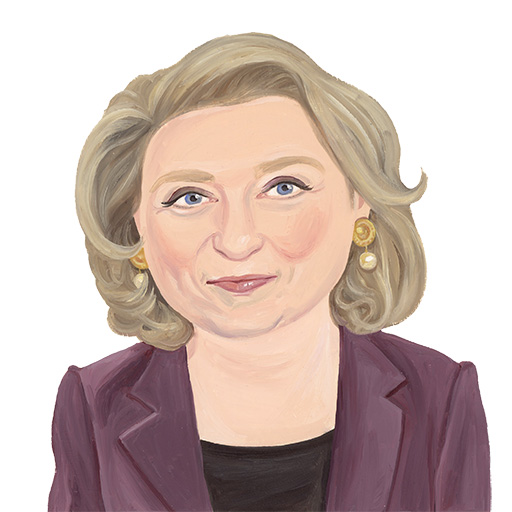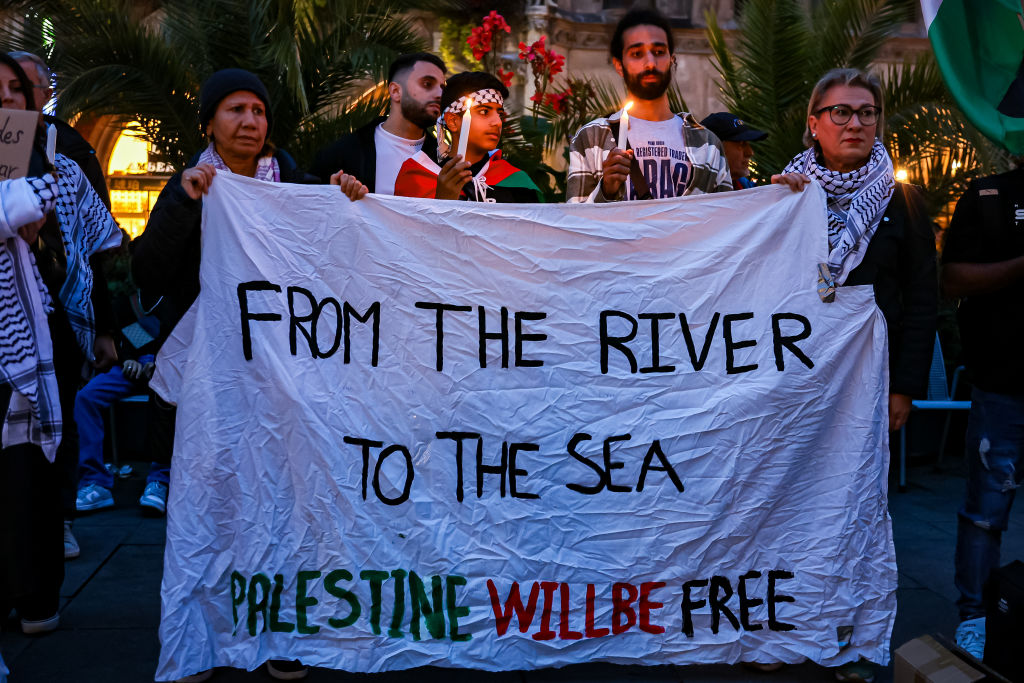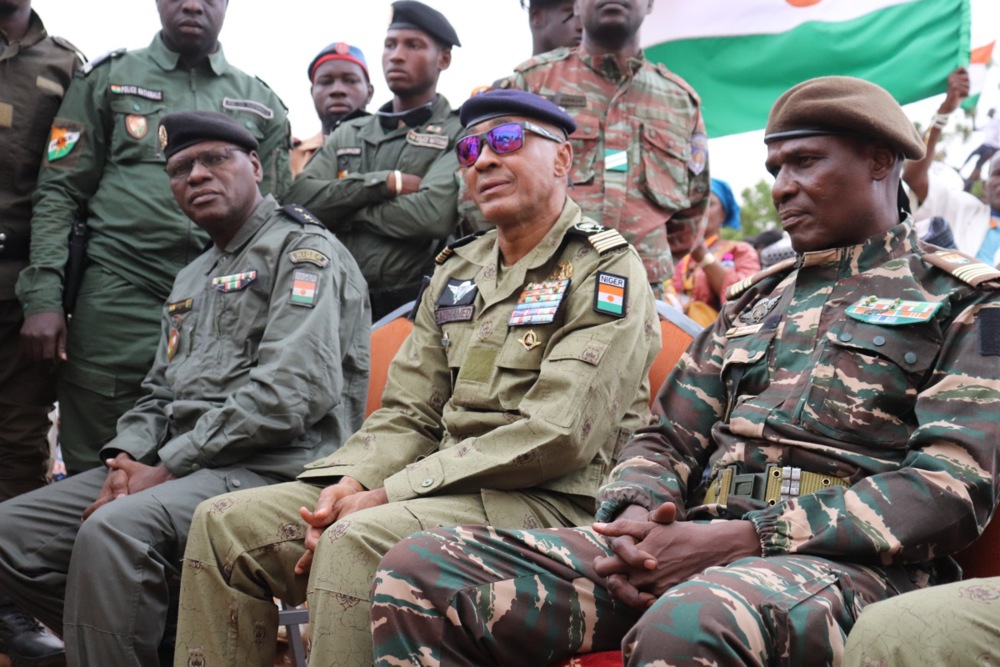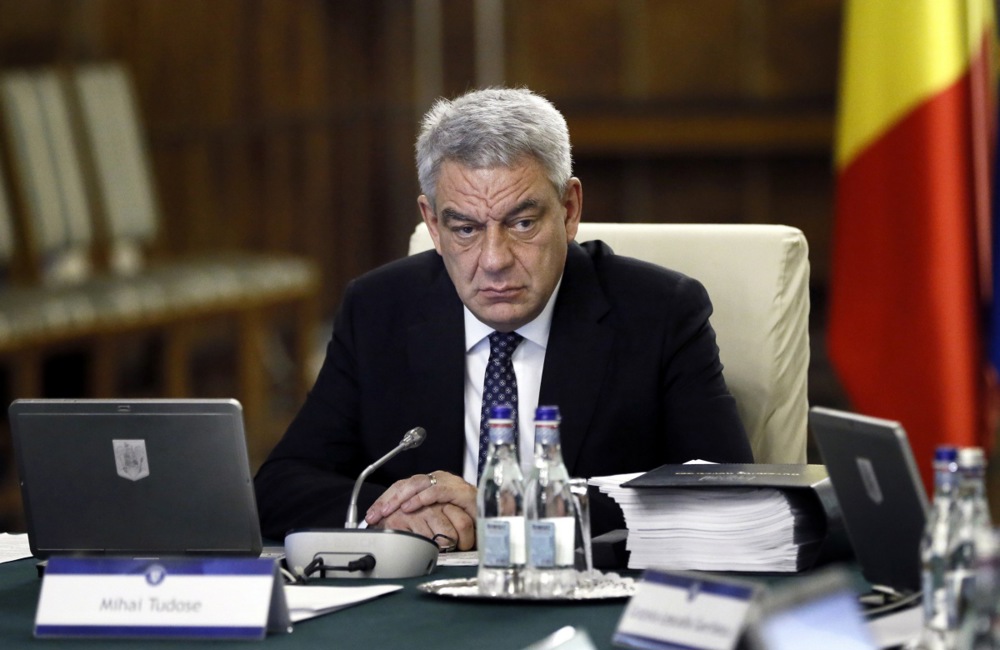In the streets of London, hundred thousand-strong mobs bay for Jewish blood under cover of “humanitarian concern” for Hamas-held Gaza. Far less numerous in Paris (some 20,000 a few days ago, led by Jean-Luc Mélenchon’s hard Left La France Insoumise), those mobs’ cries have nevertheless inspired close to a thousand anti-Semitic attacks across France, as many as in Britain. The latest, last Saturday, saw a masked man bang on the door of a 30-year-old woman in Lyons to stab her repeatedly in the belly, before running away. (On her doorjamb, next to a Jewish mezuzah, a swastika had been carved.)
Other capitals in Europe have seen, to public denunciation and private dismay, outbreaks of seemingly unprompted rage, from Berlin to Oslo and Rome to (predictably) Istanbul. The Green party Vice-Chancellor of Germany, Robert Habeck, felt impelled to record a powerful 9-minute video in which he restated modern Germany’s founding principles — and the duty for recent arrivals residing in the Federal Republic to respect them, or leave.
But how truly spontaneous are they? It seems that the fires of hatred, never hard to start off, have been deliberately stoked. In recent days, Parisians have been shocked to find dozens of stars of David stencilled on the walls of supposed Jewish homes in different areas of the capital, several days running. Eventually, the police managed to arrest two perpetrators, only to find out they were a Moldovan couple who had been paid from a hard-to-trace Moscow bank account.
“When first I heard about these anti-Semitic graffiti, I told myself: ‘Well, that would be just like the Kremlin’. And then ‘Nah. Stay away from conspiracy theories’,” the French academic and thinktanker Nicolas Tenzer recalls. “But in fact, it’s the old Russian method: divide, polarise, antagonise.”
When hundreds stormed Makhachkala Airport in the North Caucasus Russian Republic of Dagestan, waving Palestinian flags and chanting “Allahu Akbar”, surrounding on the tarmac a plane arriving from Tel Aviv looking for Jews to kill, the OMON military riot police — the same that Vladimir Putin loaned to Belarusian leader Lukashenko to enthusiastically repress demonstrations — took their time before finally intervening. On the many social media videos of the scuffles, they can be seen standing by, distinctive in their black uniforms, while passengers were being roughed up by men shouting “Are you Jewish?”
The day before, the BBC reports, a crowd in the Dagestani city of Khasavyurt gathered outside a hotel where they believed some Israelis were staying, throwing stones at the windows. A sign was put on the door reading: “Entrance strictly forbidden to citizens of Israel… (Jews).” The police eventually “let some into the hotel so they could see for themselves that no Israelis were there.”
“Russia has fomented discord, violence and division throughout the Sahel, the Black Sea, the Middle East, the Balkans and the Baltic States”, the geopolitical experts Jonathan Sweet and Mark Toth write in a strong-worded editorial for The Hill, the premier parliamentary news website and newspaper in Washington DC, headlined “Putin’s fingerprints are all over the Hamas attack”.
Looking back at Russia’s track record, the list of hostile moves on three continents reads like a blueprint for hybrid war in the 21st century. Disinformation through social media platforms, check. Funding and training insurgents to overthrow governments using mercenaries, check. Brutally suppressing uprisings in Chechnya and Syria, supporting insurrections in Niger and Sudan, illegally annexing “Russian-speaking” territories in Georgia, Moldova, Ukraine and Crimea, check and check again, culminating with last year’s “special military operation” in Ukraine that was supposed to last three days. This, Sweet and Toth remind us, has so far been “a failure that threatens Putin’s aspirations”.
Hamas leaders, welcome visitors in Moscow many times since 2006 — the year they won elections in Gaza and wrested power by force from remaining PLO officials to take control of the Strip — were back with their esteemed Russian friends only last week. The likelihood that they had not mentioned their murderous intentions on their previous visit last month is nil. (The day after the attack on Israel’s southern towns, Ali Baraka, a senior Hamas leader, thanked Russia for her “assistance” on RT, the Kremlin’s propaganda channel, boasting “Russia is happy that America is getting embroiled in the Palestinian war. It eases the pressure on the Russians in Ukraine. One war eases the pressure in another war. So, we’re not alone on the battlefield.”)
So far, Ukrainian claims that the Wagner Group trained Hamas soldiers have not yet been substantiated. But Iran’s help to Russia in Ukraine — providing Putin’s army with armed drones — has given it crucial field experience passed on to Hamas, who used the same drones against Israel with hitherto unseen tactics.
It is also known that Garantex, a Moscow-based crypto exchange that enables Russia to evade sanctions, has helped finance Gaza’s Islamic Jihad in the preparation of the October 7 attacks to the tune of $93 million, according to Elliptic, a research organisation, which believes Hamas used similar means. (No financial transaction above a few thousand dollars is allowed in Russia without the approval of the Russian Central Bank/Ministry of Finance.)
But Russia, for centuries, has been best at disinformation and propaganda. Its efforts are now concentrated on the Hamas attack as a means to split and weaken US support for Ukraine. Two weeks ago, Russia introduced a draft resolution in the U.N. Security Council that calls for an immediate cease-fire and condemns all acts of terrorism — without mentioning Hamas, and instead condemning Israeli attacks against Palestinian civilians.
Meanwhile, European public opinion is targeted by Russian propaganda stoking the flames and blaming the victims. First Putin likened the siege of Gaza to the Nazi blockade of Leningrad.
Then Russian tame media denied the October 7 atrocities. The Moscow line is now echoed in alternative international media like The Intercept, Al Jazeera English or even the mainstream left-wing Spanish daily El País. So far, a non-woke (or non-Islamist) wide majority in our countries are still reluctant to follow that line.
But for how long?






Europe’s capital needs media to challenge the status quo: That’s why Brussels Signal is launching